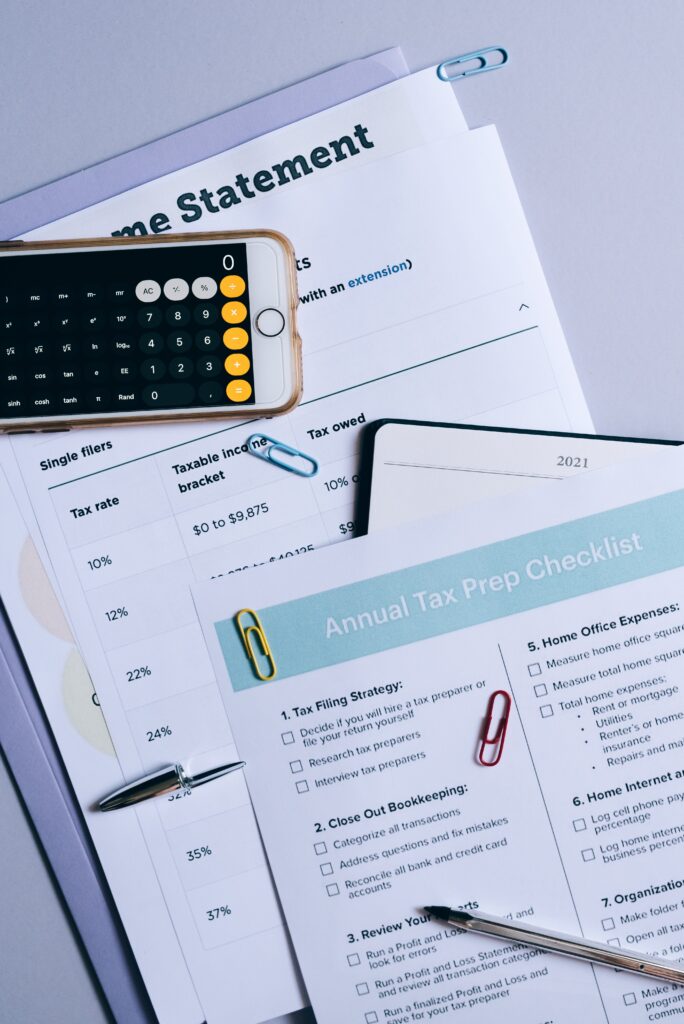Are you a homeowner looking to maximize your tax savings? Understanding how homeownership impacts your tax filing status and bracket is crucial. In this article, we will explore the various ways in which owning a home can affect your tax situation.
Understanding tax filing status
Before we dive into how homeownership impacts your tax filing status, let’s first understand what tax filing status is. Your tax filing status determines the tax rates and the standard deduction you are eligible for. There are five main tax filing statuses: single, married filing jointly, married filing separately, head of household, and qualifying widow(er) with dependent child.
Your tax filing status is determined by your marital status and whether you have dependents. It’s important to select the correct filing status as it can significantly impact your tax liability. Now that we have a basic understanding of tax filing status, let’s explore how homeownership fits into the picture.
How homeownership affects tax filing status
Owning a home can have implications on your tax filing status, especially if you are married or head of household. For married couples, the decision to file jointly or separately can significantly impact their tax liability. In most cases, married couples filing jointly experience lower tax rates and a higher standard deduction compared to married couples filing separately.
If you are the head of household, owning a home can provide additional tax benefits. To qualify as head of household, you must be unmarried and pay more than 50% of the costs of keeping up a home for yourself and a qualifying person, such as a child or parent. Owning a home can help you meet the requirement of paying more than 50% of the home’s expenses, making you eligible for the head of household filing status.
Overview of tax brackets
Tax brackets are the ranges of income that are subject to different tax rates. The United States uses a progressive tax system, which means that the more income you earn, the higher tax rate you pay. The tax brackets are divided into seven categories, ranging from 10% to 37%.
It’s important to note that tax brackets are based on your taxable income, which is your total income minus any deductions and credits you are eligible for. Now that we have an understanding of tax brackets, let’s explore how homeownership can impact them.
Impact of homeownership on tax brackets
Owning a home can potentially lower your taxable income, allowing you to take advantage of lower tax rates. One of the most significant tax benefits of homeownership is the mortgage interest deduction. This deduction allows you to deduct the interest paid on your mortgage from your taxable income.
Let’s say you are in the 22% tax bracket and you paid $10,000 in mortgage interest during the year. By deducting this amount from your taxable income, you effectively reduce the amount of income subject to the 22% tax rate. This can result in significant tax savings, especially for homeowners with high mortgage interest payments.
In addition to the mortgage interest deduction, property taxes can also be deducted from your taxable income. Depending on where you live, property taxes can be a significant expense for homeowners. By deducting these taxes, you can further reduce your taxable income and potentially lower your tax bracket.
Deductions and credits for homeowners
Apart from the mortgage interest deduction and property tax deduction, there are other deductions and credits that homeowners may be eligible for. Here are some common ones:
- Home office deduction: If you use part of your home exclusively for business purposes, you may be able to deduct expenses related to that space, such as utilities and insurance.
- Energy-efficient home improvements: Certain energy-efficient upgrades, such as installing solar panels or energy-efficient windows, may qualify for tax credits.
- First-time homebuyer credit: If you recently purchased your first home, you may be eligible for a tax credit. This credit can help offset some of the costs associated with buying a home.
- Home equity loan interest deduction: If you have a home equity loan or line of credit, the interest paid on it may be deductible, subject to certain limitations.
These are just a few examples of the deductions and credits available to homeowners. It’s important to consult with a tax professional to determine which ones you are eligible for and how to maximize your tax benefits.
Common tax mistakes for homeowners
While homeownership can provide significant tax benefits, it’s important to avoid common tax mistakes that could result in penalties or missed opportunities. Here are some mistakes to watch out for:
- Forgetting to deduct mortgage insurance premiums: If you have private mortgage insurance (PMI) on your loan, you may be able to deduct the premiums paid.
- Misclassifying home improvements: Not all home improvements are created equal when it comes to tax deductions. It’s important to understand which improvements qualify for deductions and which ones do not.
- Failing to keep track of home-related expenses: It’s crucial to maintain records of expenses related to your home, such as repairs, maintenance, and improvements. These records will be necessary when claiming deductions or credits.
- Overlooking tax benefits for home sales: If you sell your home, you may be eligible for certain tax benefits, such as the home sale exclusion. It’s essential to understand the rules and regulations surrounding home sales to maximize your tax savings.
By being aware of these common tax mistakes, you can ensure that you are taking full advantage of the tax benefits available to homeowners.
Tips for maximizing tax benefits as a homeowner
To maximize your tax benefits as a homeowner, consider implementing the following tips:
- Keep track of all home-related expenses: By maintaining detailed records of expenses related to your home, you can ensure that you don’t miss out on any eligible deductions or credits.
- Consult with a tax professional: Taxes can be complex, especially when it comes to homeownership. Working with a tax professional can help you navigate the intricacies of the tax code and maximize your tax savings.
- Stay updated on tax law changes: Tax laws are subject to change, and it’s important to stay informed about any updates that may affect homeowners. By staying updated, you can take advantage of new deductions or credits that may be available to you.
- Consider refinancing your mortgage: Refinancing your mortgage can potentially lower your interest rate, resulting in lower mortgage interest payments and higher tax savings.
By following these tips, you can ensure that you are making the most of your investment and maximizing your tax benefits as a homeowner.
Hiring a tax professional for homeowners
While it’s possible to navigate homeownership and taxes on your own, hiring a tax professional can provide numerous benefits. A tax professional can help you understand the specific rules and regulations associated with homeownership and taxes, ensuring that you are maximizing your tax savings.
Additionally, a tax professional can provide personalized advice based on your unique financial situation. They can help you identify deductions and credits you may have overlooked and help you navigate any complex tax issues that may arise.
While hiring a tax professional may come at a cost, the potential tax savings and peace of mind they provide can outweigh the expense.
Conclusion: The importance of understanding homeownership and taxes
Owning a home can have a significant impact on your tax filing status and bracket. By understanding the various ways in which homeownership affects your taxes, you can maximize your tax savings and make the most of your investment.
From deductions and credits to tax brackets and filing status, there are numerous factors to consider when it comes to homeownership and taxes. By familiarizing yourself with these guidelines and consulting with a tax professional, you can ensure that you are taking full advantage of the tax benefits available to homeowners.
So, whether you’re a first-time homebuyer or a seasoned homeowner, take the time to understand how homeownership impacts your tax situation. It’s an investment that can pay off in the form of significant tax savings and financial security.



Greetings! I’ve been reading your website for a
while now and finally got the courage to go ahead and give
you a shout out from Houston Tx! Just wanted to say
keep up the fantastic work!